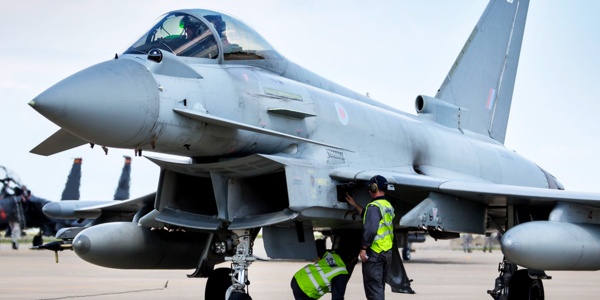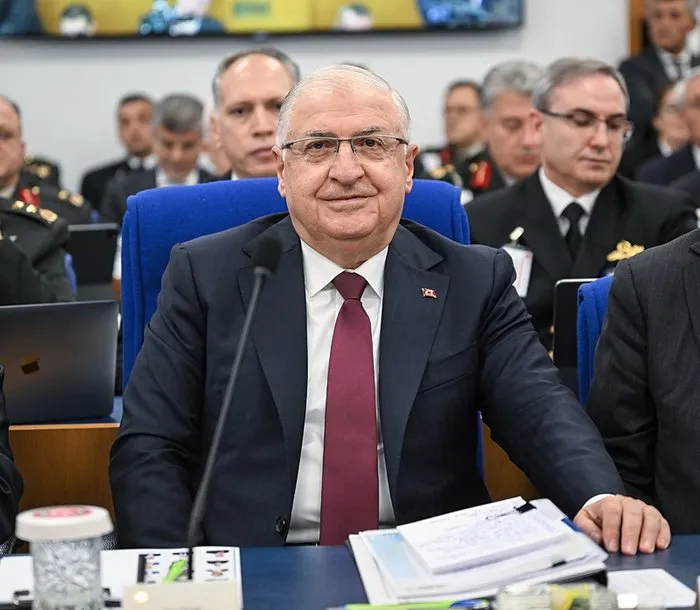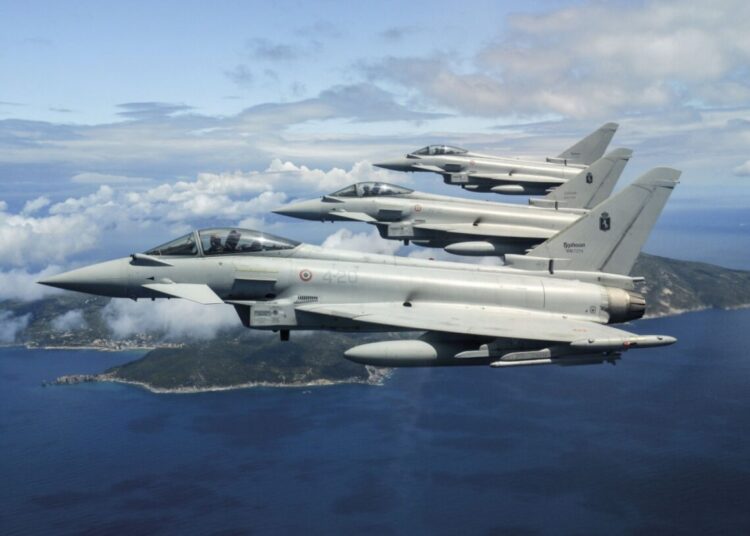Levent Kenez/Stockholm
Facing an aging air fleet and prolonged delays in acquiring new F-16s from the United States, Turkey is expediting its efforts to procure Eurofighter Typhoon jets. As part of an urgent plan to strengthen its air force capabilities, the country is even reportedly prepared to purchase used Eurofighter jets.
Turkey’s procurement strategy includes an initial acquisition of 20 second-hand Tranche 1 Eurofighter Typhoons from the United Kingdom, followed by an additional 20 newly produced Tranche 4 jets. According to Spanish media outlet La Razon, deliveries are expected to commence in 2026, with full operational capability projected by 2030.
Earlier reports in the Turkish media included unverified claims that the Eurofighters to be acquired by Turkey may include aircraft previously sold by the UK to Gulf countries.
According to Turkish media on February 6, a source from the Ministry of Defense said the country’s air force is continuing its efforts to procure 40 Eurofighter Typhoon aircraft to fulfill operational needs. The source emphasized that various configurations are being considered, although no final decisions have been made at this stage. The Needs Definition Document, which was prepared following negotiations, has been submitted to both the UK Ministry of Defense and the relevant company. The ministry is currently awaiting their pricing proposal. The source also noted that while the preference is for the first batch of aircraft to be newly produced, the final arrangement will depend on the offer received.

On November 13, 2024, Turkish Minister of Defense Yaşar Güler announced that Germany had lifted its long-standing objection to Turkey’s Eurofighter Typhoon purchase. Germany had previously blocked the sale, citing geopolitical concerns such as Turkey’s acquisition of Russian S-400 missile systems, military operations in Syria and delays in Sweden’s NATO membership approval. However, German Chancellor Olaf Scholz confirmed during an October 19, 2024 visit to Istanbul that Germany had given initial approval for the Eurofighter sale and that negotiations would continue under the leadership of the UK.
On December 18, 2024 two Eurofighter Typhoon jets from the UK’s Royal Air Force landed at Mürted Air Base in Ankara after participating in the Ferocious Falcon V exercise in Qatar. Turkish officials conducted a detailed assessment of the aircraft as part of the procurement planning process.
Eurofighter GmbH, the multinational consortium responsible for the design and production of the Typhoon, comprises Airbus Defence and Space (46%), BAE Systems (33%) and Leonardo (21%). The consortium’s stakeholders are based in Germany, the UK, Spain and Italy.
Meanwhile, Turkey’s plans to equip the Eurofighter Typhoons it intends to acquire with Meteor missiles have raised concerns in Greece, given the ongoing military competition between the two countries in the Aegean region. Greece has expressed objections and is reportedly engaging in diplomatic efforts to prevent Turkey from securing these weapons.
Turkish Foreign Minister Hakan Fidan caused a stir during a press conference on January 10 when he referred to France as a “small country,” a remark has become a bit ironic since Turkey is now negotiating to acquire French-made Meteor missiles.
The Meteor missile, developed by European defense contractor MBDA, is one of the most advanced air-to-air missiles globally. With a range of over 100 kilometers, it uses a ramjet engine that allows it to maintain high speeds over long distances. Its radar-guided targeting system makes it highly effective against evasive targets and capable of engaging multiple targets simultaneously.
Ankara has decided to prioritize the immediate procurement of F-16 fighter jets over modernization of its existing fleet. Speaking in parliament on November 26, 2024, Defense Minister Güler confirmed that Turkey has abandoned its plan to acquire modernization kits for its currently owned aircraft. “As part of the F-16 Modern Procurement Project, our efforts continue to introduce advanced, modern fighter jets into our inventory until our domestically developed HÜRJET and fifth-generation KAAN aircraft become operational. We have made the initial payment for the procurement of F-16 Block 70 jets, amounting to $1.4 billion. This purchase includes 40 F-16 Block 70 Viper jets. We initially planned to modernize 79 aircraft with upgrade kits but have now abandoned that plan.”

Instead of procuring these upgrade kits from the US, Ankara has opted to transfer modernization responsibilities to Turkish Aerospace Industries (TUSAŞ).
In 2021 the US administration officially removed Turkey from the F-35 Joint Strike Fighter program due to Ankara’s purchase of the Russian S-400 missile system in 2017. The expulsion cost Turkey $11 billion in export revenue since some of the components for the F-35s would no longer be manufactured in Turkey. However, Ankara hopes to return to the F-35 program with new US President Donald Trump. Güler previously said that American officials had demonstrated a shift in their approach to selling F-35s to Turkey, influenced by Turkey’s development of its indigenous fifth-generation fighter jet, the KAAN. However, Güler clarified that no concrete progress has yet been made on this front.












